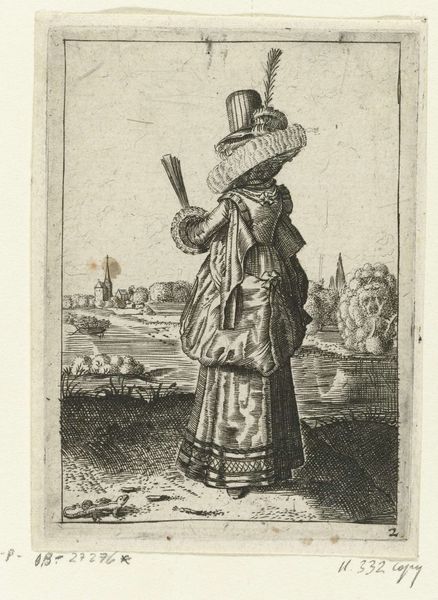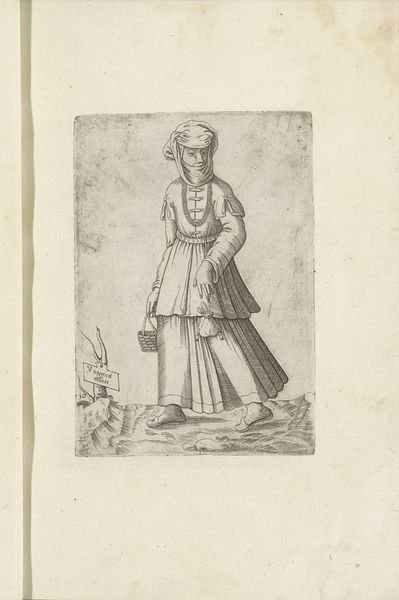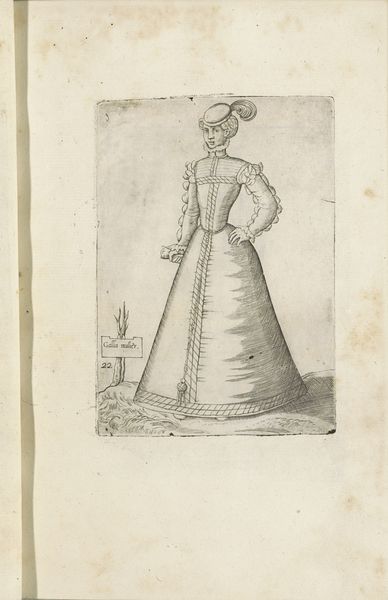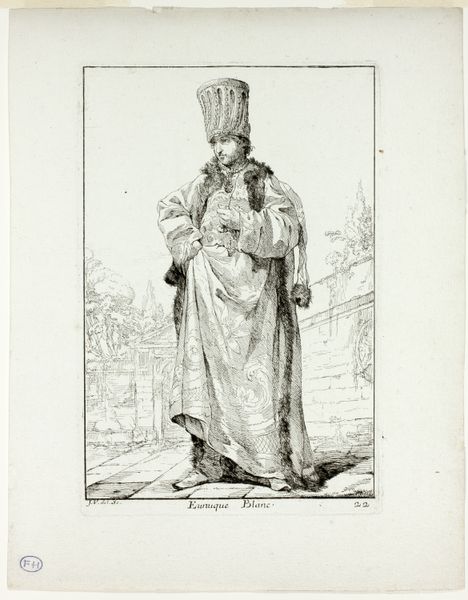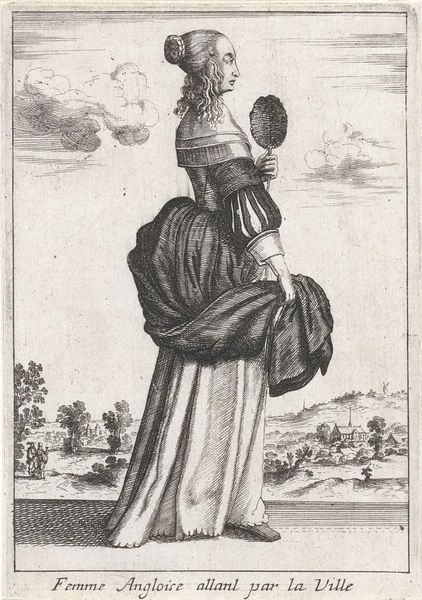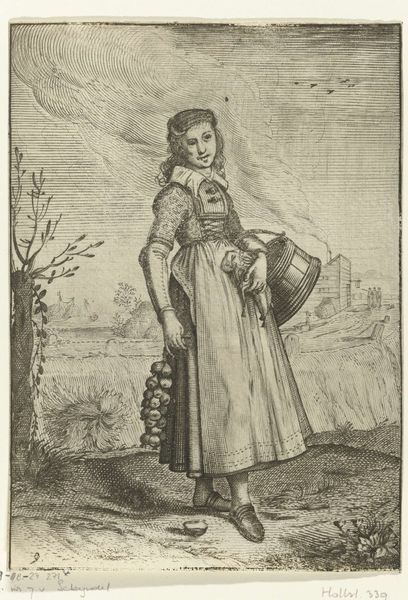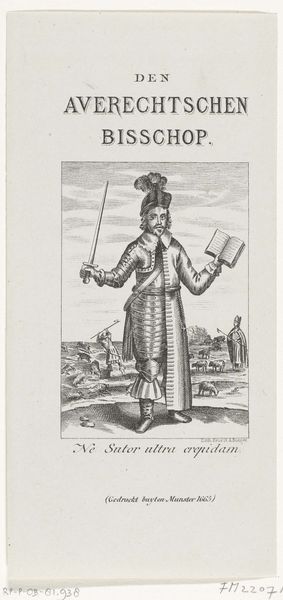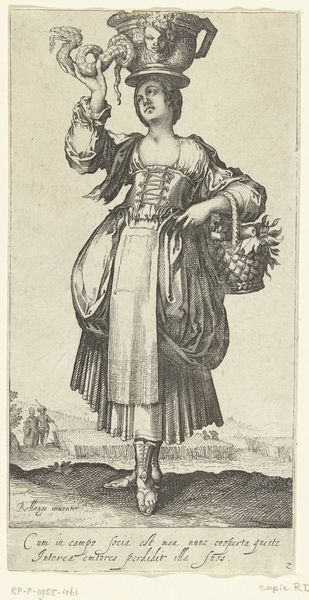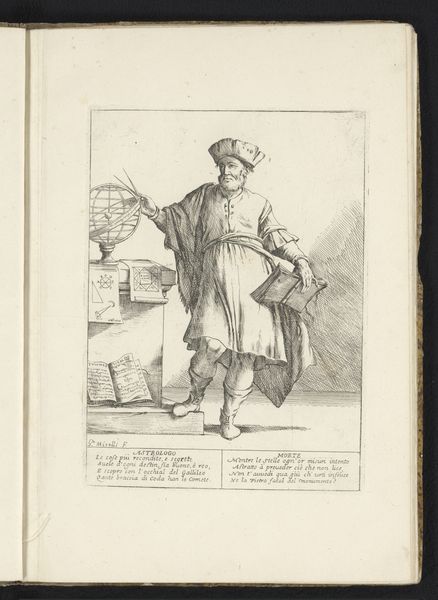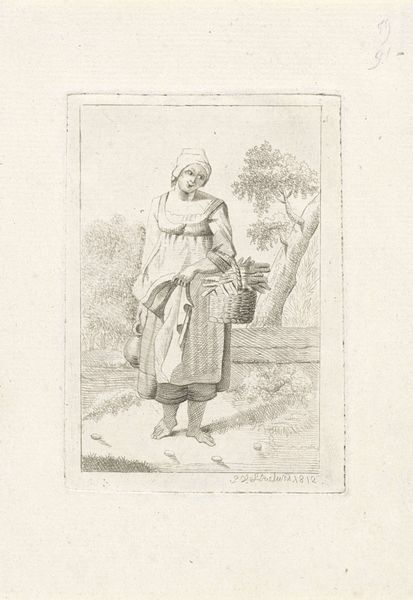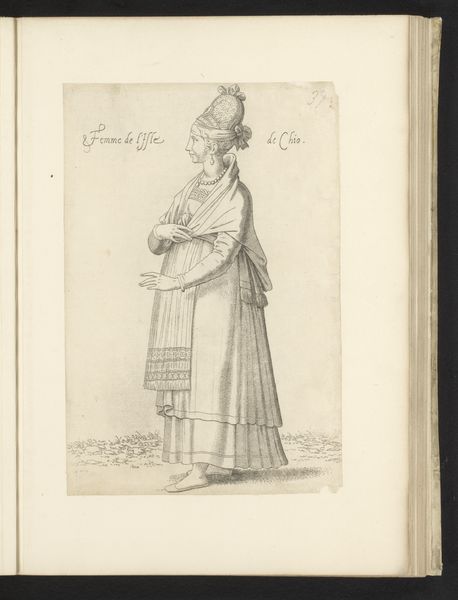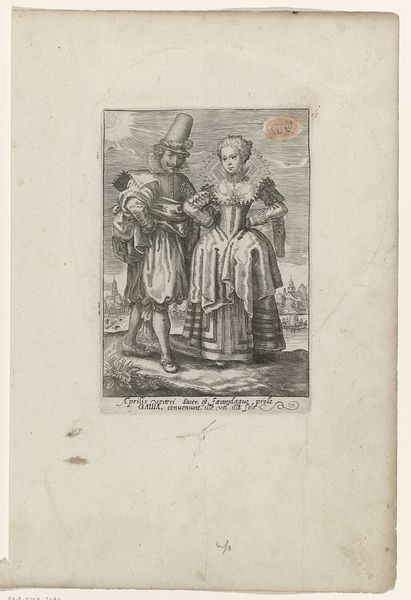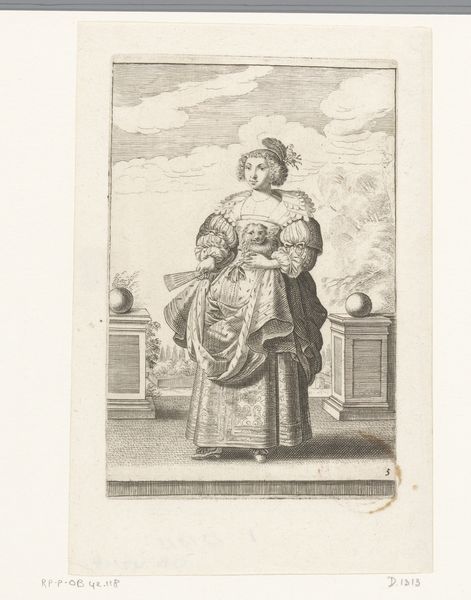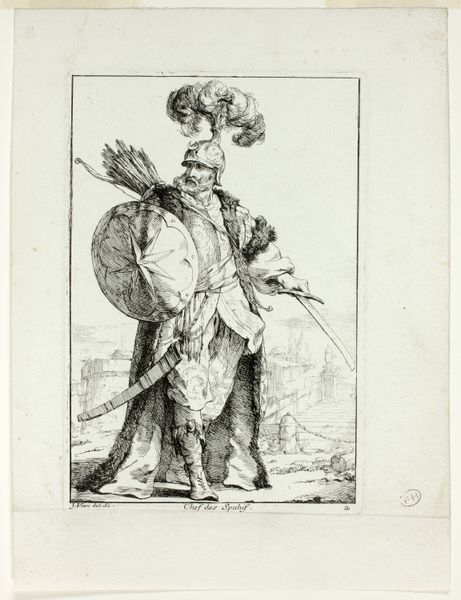
print, engraving
#
baroque
# print
#
landscape
#
figuration
#
line
#
genre-painting
#
dress
#
engraving
Dimensions: height 216 mm, width 147 mm
Copyright: Rijks Museum: Open Domain
Abraham Bosse created this print, Melkmeid met een melkkruik op haar hoofd, sometime in the 17th century. The milkmaid, balancing a heavy milk churn on her head, isn't merely carrying milk; she embodies the virtues of labor and sustenance, a timeless motif. The image is reminiscent of classical caryatids—architectural figures bearing weight—yet transformed into an emblem of the everyday. Consider, too, the ancient Roman depictions of Ceres, goddess of agriculture, often shown carrying fruits or grains, symbols of fertility and nourishment. Over time, this archetype has been passed down, evolving from divine representation to the depiction of the common worker. The precarious balance of the milk churn speaks to the fragility of life, the potential for loss. This resonates deeply within our collective memory, reminding us of our dependence on basic provisions and the constant effort required to maintain them. It is a visual representation of the inherent tension between stability and risk, engaging us on a subconscious level. The reappearance of this image emphasizes the cyclical progression, evolving and resurfacing throughout history.
Comments
No comments
Be the first to comment and join the conversation on the ultimate creative platform.
